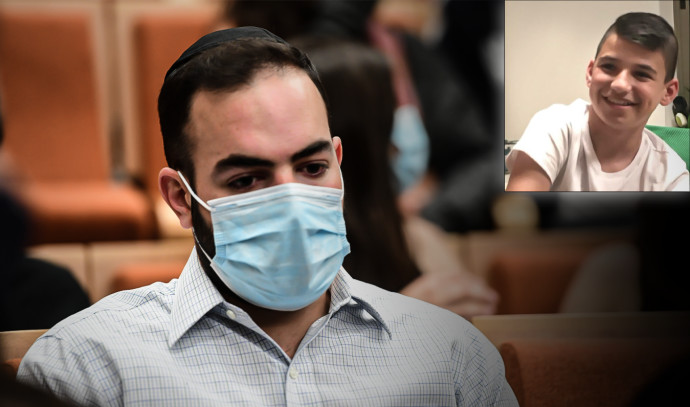The Supreme Court today (Thursday) rejected the appeal filed by Eliyahu Moshe Bar Zakai, who was convicted of trampling to death the boy Ayalon Shalev Amsalem between the 13th of 2018 and the injury of another boy. The court upheld the 12-year prison sentence handed down by the district court last June.
In June 2020, Bar Zakai was convicted of frivolous manslaughter, grievous bodily harm, drunk driving, unreasonable speeding, dismissal of an investigation, obstruction of justice and attempted destruction of evidence, when the court even ruled that Bar Zakai tried to escape responsibility for the case, including while drinking. Multiple amount of water to obscure traces of alcohol, coordination with one of his friends to testify that he did not consume alcohol and deletion of incriminating conversations that existed before and after the accident.
 Elon Shalev-Amsalem (Photo: Courtesy of the family)
Elon Shalev-Amsalem (Photo: Courtesy of the family)Justices Neil Handel, Yaron Elron and Ofer Grossroff wrote in their decision that “anyone who chooses to endanger life in this way will know, killing children and tearing up families, and finally also bravely trying to evade justice, because his severe punishment will come, and when it does, it may be a severe punishment. In particular, it is more serious than he imagined, and perhaps even more serious than that imposed on the criminals who preceded him. “
They also wrote that “it is not disputed that in determining the compound and placing the sentence near its upper end the district court with the appellant significantly aggravated: its sentence is closer to that imposed on drivers also convicted of abandoning victims in the fatal road accident they caused, or drivers determined to act out of indifference, or Drivers found to be responsible in circumstances similar to many lobes are injured. The choice to raise the penalty threshold in his case seems justified in itself. To dissuade the appellant from driving while intoxicated and alerted him to her dangers, while the latter (the victims) waited as obligated on the sidewalk until they could cross the road safely. For his actions and virtues, but only to punish the appellant for his deeds and shortcomings. “
